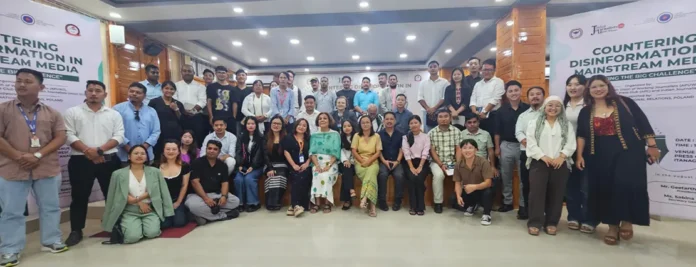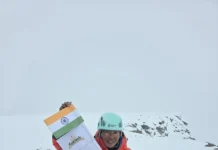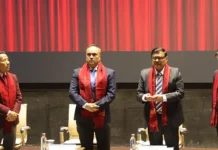Battle against fake news takes centre stage at Itanagar workshop
ITANAGAR, 21 Aug: Democratic societies can adapt to rapid technological changes only if “scholars, journalists, universities and schools join forces to keep fake content at bay,” Dr Malgorzata Bonikowska, president of the Centre for International Relations (CIR) in Poland, said at a workshop here on Thursday.
Calling the 21st century a “digital minefield of truth and lies,” Bonikowska, who is also a professor at the Warsaw University in Poland, said that the responsibility of the media has grown manifold in the digital age where misinformation spreads faster than the truth.
She urged journalists to “double or triple check” facts before publishing to safeguard accuracy and credibility, and stressed that India, Europe and even Arunachal Pradesh are grappling with similar challenges.
Fact-checking, she said, must become journalism’s frontline defence.
The workshop on ‘Countering disinformation and misinformation in mainstream media’ was organised by the Arunachal Pradesh Union of Working Journalists, in collaboration with the Arunachal Press Club and the Indian Journalists Union (IJU), with support from the CIR, Poland.
Senior journalists, officials from the IPR Department and research scholars from the mass communication department of Rajiv Gandhi University took part in the event.
Bonikowska underlined that education is a critical pillar in preparing societies to cope with technological disruptions.
“A society which is well informed and well educated is the future of every country,” she said, adding that journalists and scholars must work together to devise tools and methods to fight fake news without undermining knowledge and democratic values.
Speaking on the occasion, IJU President Geetartha Pathak warned that false or misleading information could cause deep damage to society.
He called for creating platforms where journalists could interact with different sections of society to collectively tackle the menace.
“Everyone must think before disseminating wrong information, considering the potential impact of their words,” he said.
Echoing similar concerns, IJU Secretary-General Sabina Inderjit said that social media has become a “hotspot” for fake news, and urged the media fraternity to empower the younger generation with the ability to critically evaluate digital information.
While technology has widened access to information, she cautioned, it has also multiplied the risks of unchecked content.
The workshop also deliberated on how traditional media could retain public trust and credibility, and emphasised on collaborative efforts by journalists, academics and institutions to help societies adapt to the rapidly evolving digital landscape.



